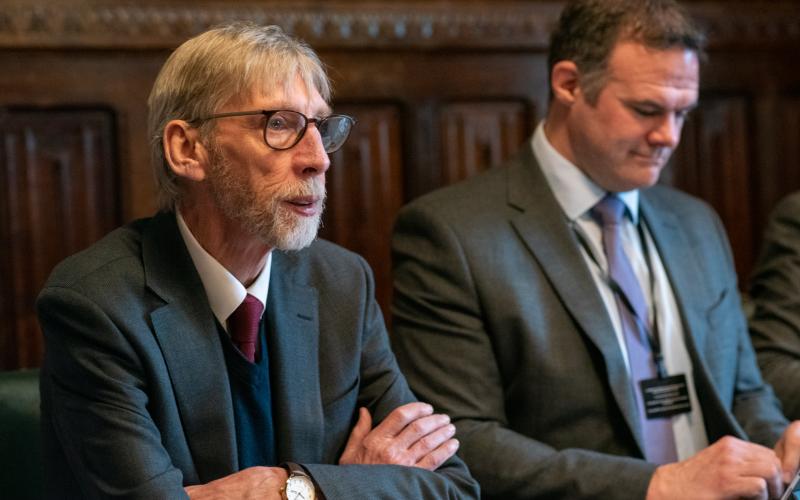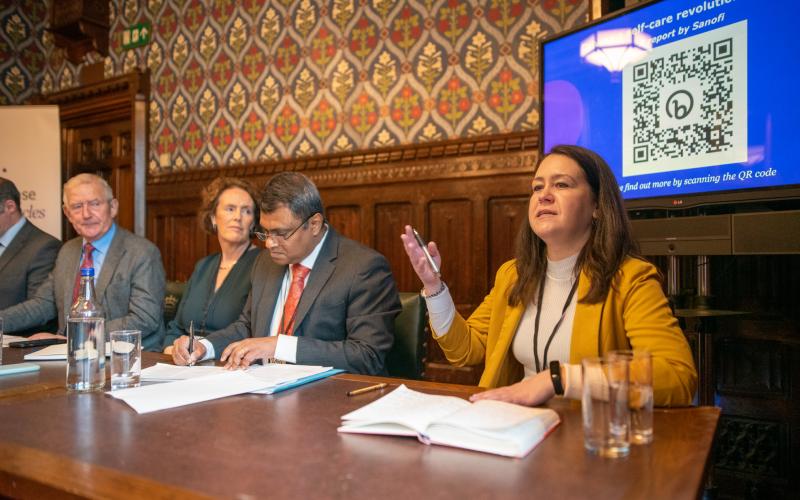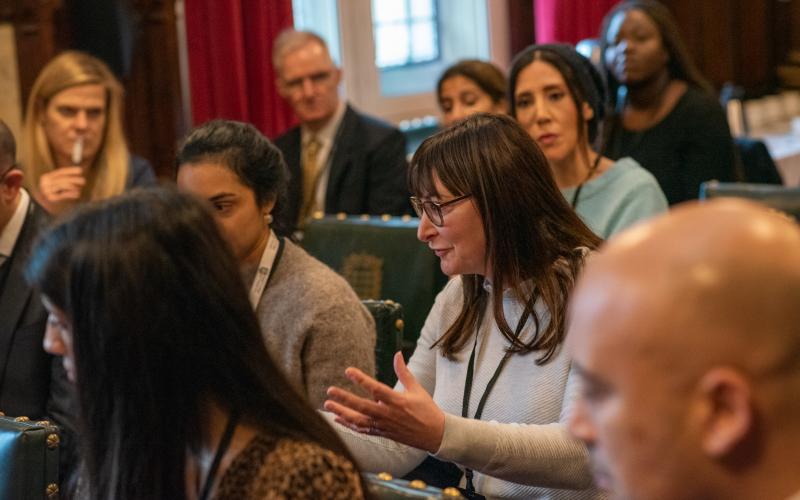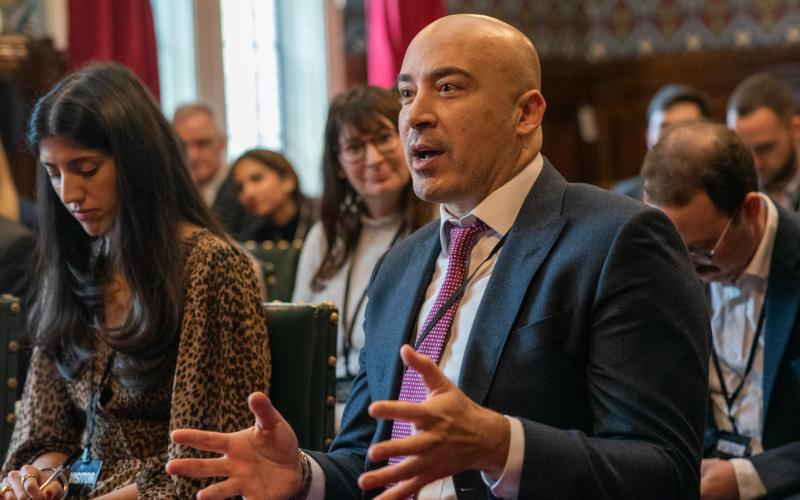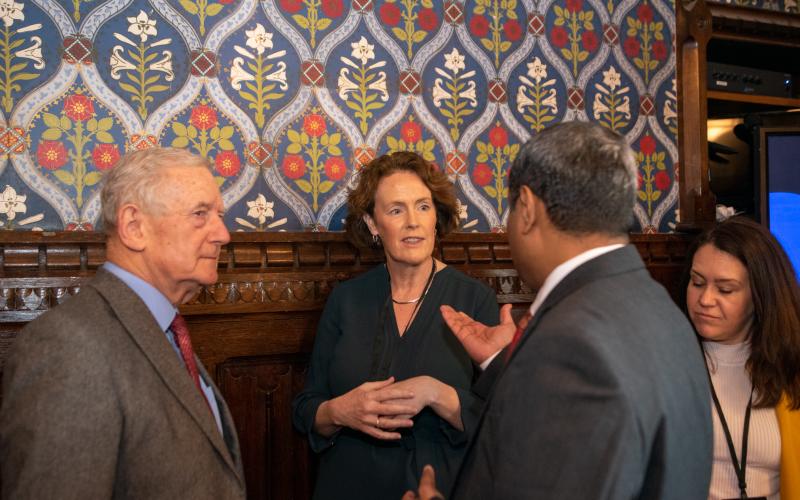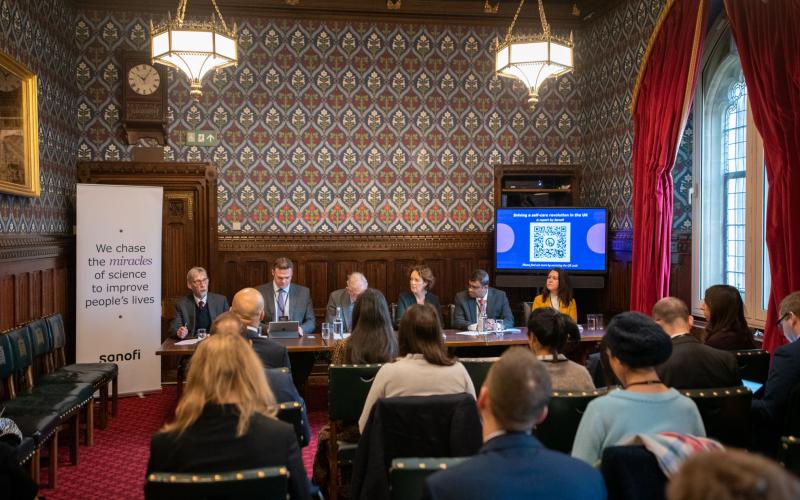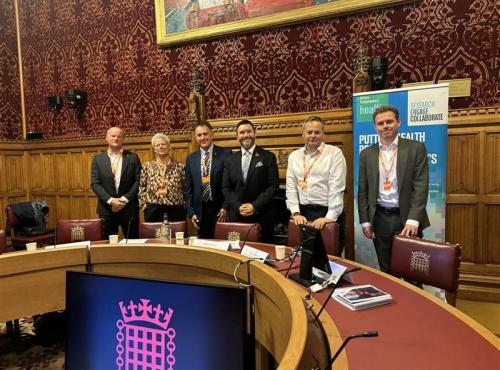Driving a self-care revolution in the UK
The All-Party Parliamentary Group for Health (APHG) met on Tuesday 31st January 2023 in the House of Commons to host a panel discussion supported by Sanofi to discuss how we can drive a self-care revolution in the UK. This session brought together representatives of the NHS, research community and industry to discuss how we can promote a better understanding of self-care amongst GPs and patients, share insights into making best use of community pharmacies and ensuring the right medicine is made available via the right route.
The panel discussion, chaired by Barry Sheerman MP, Labour and Co-operative MP for Huddersfield and Policy Connect Co-founder, featured the following speakers:
- The Rt Hon Sir George Howarth MP
- Sarah Tilsed – Head of Patient Partnership, Patients Association
- Harsh GK – Western Europe Consumer Healthcare Head, Sanofi
- Claire Nevinson – Superintendent Pharmacist, Boots UK
- Malcolm Harrison – Chief Executive, The Company Chemists’ Association
The government has outlined its ambition to decrease the growing backlogs faced across the NHS systems in the UK. Following the Covid-19 pandemic, GP referrals, A&E waiting times and cancer waiting lists have continued to grow with a great demand for hospital treatments outstripping capacity. It is no surprise that the demands of delivering care during a pandemic have led to significant backlogs and longer waits for patients including longer waiting times for patients with self-treatable conditions.
As part of a greater emphasis on prevention, encouraging patient self-care will be a key aspect of future proofing health services and relieving some of the current pressures the NHS faces, including the significant strain faced by primary care.
Moreover, the use of pharmacies in the role of promoting patient self-care, offers the potential to keep patients away from overburdened GP and hospital services. They have the potential to support elective recovery through an expanded role in minor injuries, diagnostics and management of long-term conditions. Current government ambition and legislation could enable this, if services are appropriately supported.
The following key recommendations were made:
- There is a call for a National Self-Care Strategy to provide national leadership on improving understanding of self-care, encourage its use and relieve the burden currently faced by health services.
- There is a need for a realistic overhaul of funding available to pharmacies to be able to help release pressures for the NHS. The current model of funding for pharmacies is unsustainable, with each pharmacy in England currently being underfunded by at least £60,000 since 2017.
- There is a call for a National Enhanced Pharmacy Service, to address the lack of interoperability between health care services. This call includes the need for access to shared patient records which would provide a smooth transition of care between patients, pharmacists and GPs.
- There is a need for a greater emphasis on education regarding patient self-care and greater awareness of the services pharmacies could provide including for minor ailments. The need for co-creation for patients was highlighted, to be included in designing how community pharmacist can tailor it better for the general population.
